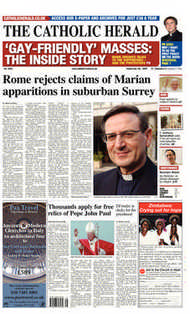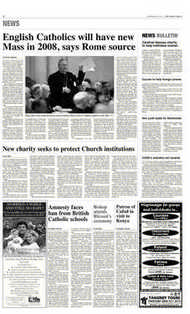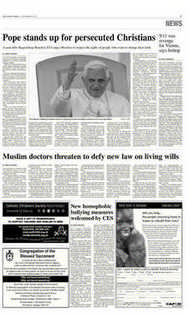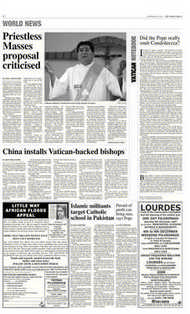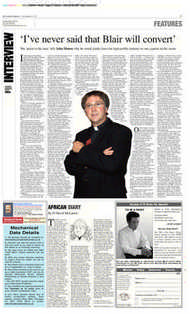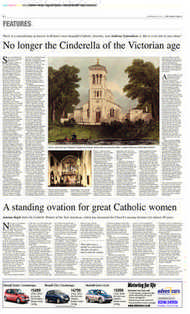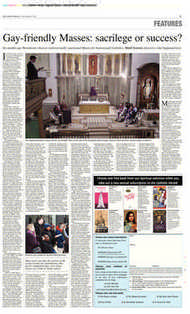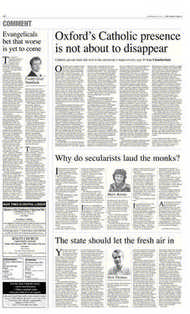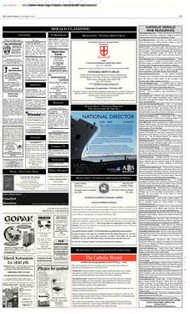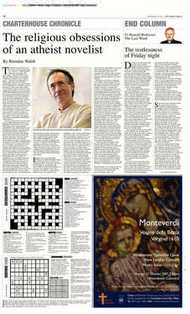Page 11, 28th September 2007
Page 11

Report an error
Noticed an error on this page?If you've noticed an error in this article please click here to report it.
Tags
Share
Related articles
Begging A Few Favours For Some Cheerful Nuns
Mary And England's Conversion
St. Therese's Sister Pleads For Poland
Confusion Of The Two Shrines Of Alsingham
Contemplatives In The North
Putting On The Virtues Of Mary
Our orders remain faithful to the life of prayer and austerity
From Sister Judith Leckie, Prioress of the Carmel of Our Lady of Walsingham SIR – Many of us felt John Ellis (Feature, September 14) was making some pretty strong judgments, both about contemplative religious life in general and the life as it is lived both at Prinknash and Stanbrook Abbeys.
When I entered Carmel in the late 1970s there was a real sense of growth and optimism about religious life. It was believed that there would continue to be vocations. However, it was not long before things changed radically. Buildings that once had been filled with vocations (or, at least, people with aspirations to religious life) were now looking pretty empty. Seminaries suffered also, as we all know. We did not – and, I would think, could not – have predicted this rapid and radical change in the religious and social culture of these last decades in our society.
Mr Ellis suggests that there are vocations but that they are not being offered what they are looking for. There may be truth in that. And it is good that new communities are being formed that may meet the goals of these new vocations, though it is still too early to see for sure.
However, for those old and established contemplative religious orders ( I cannot speak about active congregations) I would like to suggest that, though we have welcomed and made adaptations asked of us from Vatican II, we have, for the most part, remained deeply faithful to our lives of prayer and austerity insofar as it is possible with fewer numbers and older religious.
Most contemplative monasteries do receive requests from men and women to come and try their vocations. I would venture to suggest from our own experience that it is not that these men and women are not being offered, as Mr Ellis suggests, a chance to get their “hands dirty and their minds truly stuck in the Lord’s work”, but that things that have always been a traditional part of monastic life are so utterly foreign to many modern men and women as to be far too great a culture shock for many. Such things as the disciplined regularity of monastic life, the sharing of meals together, and the 24/7 intensity of community life are stumbling blocks which it is difficult for us to know how to deal with without changing the very essence of our vocations. What I am suggesting is that, though we may always be in need of reformation, on the whole those factors which prevent vocations to the monastic life from remaining are caused more by societal factors than the failure of the orders.
Finally, Mr Ellis suggests that what today’s young people are wanting is a chance to work “head to head, spiritually and physically, with the disenfranchised, the poor, the lonely, the sick”. I think that is really wonderful, but it is not what the people he is attacking have understood themselves (for centuries) to be called to by God. For these people it is to live their lives of contemplative prayer for the world and for the Church and to understand that this is not an escape from harsh realities but a prayerful and, one hopes, healing embracing of God’s world.
Yours faithfully, JUDITH LECKIE Langham, Norfolk
blog comments powered by Disqus


